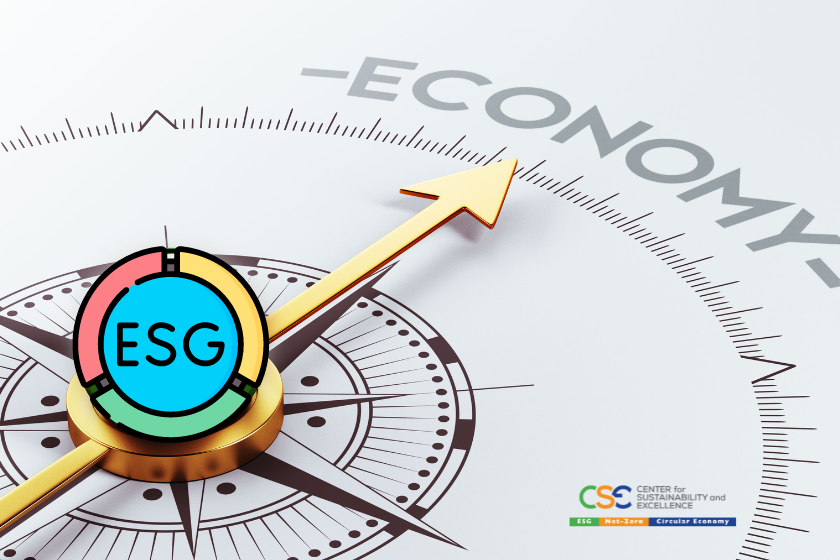With global investors being increasingly focused on ESG ratings & issues in their investment strategies – according to the Capital Group ESG Global Study, roughly 89 percent of investors considered ESG issues in some form as part of their investment approach in 2022 – it’s no surprise that the acronym “ESG” has never been more popular in the corporate world.
Environmental, Social, and Governance (ESG) is a rating framework used by investors, stakeholders, and businesses to evaluate a company’s sustainability and ethical practices. This framework helps a company:
- create a structured approach to evaluating its practices and ESG-related business risks and opportunities,
- set standards and guidelines on how to operate sustainably and responsibly,
- offer its internal and external stakeholders a comprehensive view of the state of ESG initiatives and
- create transparency and accountability.
Although ESG frameworks continue to evolve and gain wider use, there is still a lack of clarity about how ESG data is gathered and used, or how they may align, or not, with individual investment goals. This lack of clarity has resulted in understandable frustration and along with it comes skepticism over the ratings services and scores used to measure environmental, social, and governance-related business practices. Indicative of this frustration and skepticism is the 2022 comment on Twitter of Tesla CEO Elon Musk “Exon was rated in the top 10 best in the world for ESG by S&P 500, while Tesla didn’t make the list! ESG is a scam”, which created quite a stir.
No matter what Elon Musk and the other skeptics say or do, ESG has become a crucial tool for companies looking to demonstrate their commitment to sustainable growth and responsible business practices. And since investors use ESG to ensure that the companies they’re investing in are engaging in sustainable and ethical business practices, it is imperative for all types of enterprises to know how to use them effectively.
To avoid confusion when using ESG rating frameworks, here are some useful tips to consider:
Understand the criteria: Businesses need to understand the criteria used by ESG rating agencies to evaluate their performance. Different ESG rating agencies may use different criteria, so it’s important to familiarize themselves with the criteria used by the agency they’re working with.
Be transparent: Businesses should be transparent about their ESG performance and communicate their sustainability practices and policies to stakeholders. This will help stakeholders understand the company’s ESG performance and prevent any confusion.
Use multiple sources: ESG ratings from different agencies may vary, so businesses should use multiple sources to evaluate their ESG performance. This will help businesses get a more comprehensive view of their ESG performance.
Focus on materiality: Businesses should focus on the ESG issues that are material to their industry and business model. This will help them prioritize their sustainability efforts and address the issues that matter most to their stakeholders.
Seek external guidance: Businesses can seek external guidance from ESG consultants and sustainability experts to help them navigate the ESG landscape and improve their performance.
And last but not least, educate your C-suite executives: Certified training on ESG provides a critical understanding of relevant environmental, social, and governance issues that affect the business and it enables employees to contribute to their respective activities and build buy-in for the firm’s strategy.
CSE’s research findings
CSE’s 2022 research on “How ESG influence profitability in FT 500 companies and most common ESG practices & guidelines used“, examined the ESG practices and commitments of more than 400 FT 500 companies in North America and Europe from 31 sectors, with high percentage of profitability. Its finding verified that there is indeed an increased influence between financial performance, brand credibility and ESG good practices. This research program furthers CSE’s commitment to offer high caliber training in Sustainability ESG for C-suite executives worldwide.
CSE is preparing now for its upcoming training on ESG in USA. This session will focus on executive-level issues, as they pertain to the fundamentals of implementing a corporate sustainability ESG strategy, based on the methodology developed by CSE. This five-part methodology, put successfully into practice by Fortune 500 firms and other leading companies around the world, includes the following parts: awareness and training; stakeholder mapping and engagement, assessment, goals and strategy, and reporting.
Register now for the USA | Certified Sustainability (ESG) Practitioner Program, Leadership Edition 2023 and make sure that your company remains at the forefront and drive positive change in your industry.
Related Sustainability Articles









